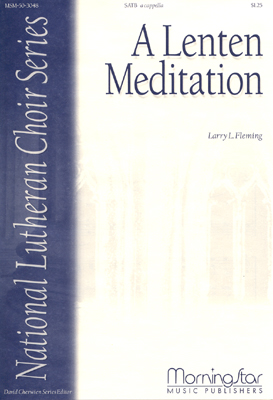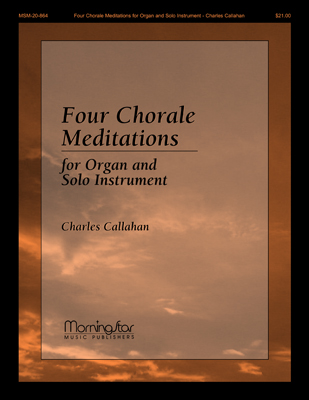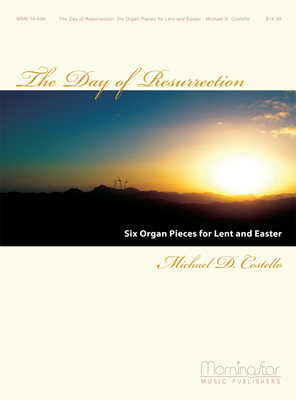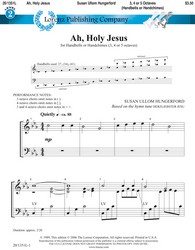- |
User Links
Herzliebster Jesu, was hast du verbrochen
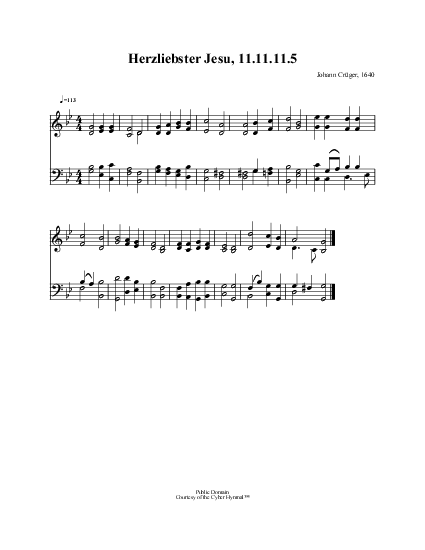
Herzliebster Jesu, was hast du verbrochen
Author: Johann HeermannTune: HERZLIEBSTER JESU
Published in 67 hymnals
Printable scores: PDF, Noteworthy ComposerAudio files: MIDI
Representative Text
1 Herzliebster Jesu, was hast du verbrochen,
daß man ein solch scharf Urteil hat gesprochen?
Was ist die Schuld, in was für Missetaten
bist du geraten?
2 Du wirst gegeißelt und mit Dorn gekrönet,
ins Angesicht geschlagen und verhöhnet,
du wirst mit Essig und mit Gall getränket,
ans Kreuz gehenket.
3 Was ist doch wohl die Ursach solcher Plagen?
Ach, meine Sünden haben dich geschlagen;
ich, mein Herr Jesu, hab dies verschuldet,
was du erduldet.
4 Wie wunderbarlich ist doch diese Strafe!
Der gute Hirte leidet für die Schafe,
die Schuld bezahlt der Herre, der Gerechte,
für seine Knechte.
5 Der Fromme stirbt, der recht und richtig wandelt,
der Böse lebt, der wider Gott gehandelt;
der Mensch verdient den Tod und ist entgangen,
Gott wird gefangen.
6 O große Lieb, o Lieb ohn alle Maße,
die dich gebracht auf diese Marterstraße!
Ich lebte mit der Welt in Lust und Freuden,
und du mußt leiden.
7 Ach großer König, groß zu allen Zeiten,
wie kann ich g'nugsam solche Treu ausbreiten?
Keins Menschen Herz vermag es auszudenken,
was dir zu schenken.
8 Ich kann's mit meinen Sinnen nicht erreichen,
womit doch dein Erbarmung zu vergleichen;
wie kann ich dir denn deine Liebestaten
im Werk erstatten?
9 Ich werde dir zu Ehren Alles wagen,
kein Kreuz nicht achten, keine Schmach und Plagen,
nichts von Verfolgung, nichts von Todesschmerzen
nehmen zu Herzen.
10 Weil's aber nicht besteht in eignen Kräften,
fest die Begierden an das Kreuz zu heften,
so gib mir deinen Geist der mich regiere,
zum Guten führe.
11 Wann, o Herre Jesu, dort vor deinem Throne,
wird stehn auf meinen Haupt die Ehrenkrone,
da will ich dir, wenn alles wird wohl klingen,
Lob und Dank singen.
Source: Antwort Finden in alten und neuen Liedern, in Worten zum Nachdenken und Beten: evangelisches Gesangbuch (Bayern, Mitteldeutschland, Thüringen) #81
Author: Johann Heermann
 Johann Heermann's (b. Raudten, Silesia, Austria, 1585; d. Lissa, Posen [now Poland], 1647) own suffering and family tragedy led him to meditate on Christ's undeserved suffering. The only surviving child of a poor furrier and his wife, Heermann fulfilled his mother's vow at his birth that, if he lived, he would become a pastor. Initially a teacher, Heermann became a minister in the Lutheran Church in Koben in 1611 but had to stop preaching in 1634 due to a severe throat infection. He retired in 1638. Much of his ministry took place during the Thirty Years' War. At times he had to flee for his life and on several occasions lost all his possessions. Although Heermann wrote many of his hymns and poems during these devastating times, his persona… Go to person page >
Johann Heermann's (b. Raudten, Silesia, Austria, 1585; d. Lissa, Posen [now Poland], 1647) own suffering and family tragedy led him to meditate on Christ's undeserved suffering. The only surviving child of a poor furrier and his wife, Heermann fulfilled his mother's vow at his birth that, if he lived, he would become a pastor. Initially a teacher, Heermann became a minister in the Lutheran Church in Koben in 1611 but had to stop preaching in 1634 due to a severe throat infection. He retired in 1638. Much of his ministry took place during the Thirty Years' War. At times he had to flee for his life and on several occasions lost all his possessions. Although Heermann wrote many of his hymns and poems during these devastating times, his persona… Go to person page >Text Information
| First Line: | Herzliebster Jesu, was hast du verbrochen |
| Author: | Johann Heermann |
| Language: | German |
| Notes: | Polish translation: See "Jezu mój miły, w czymżeś tak przewinił"; Spanish translation: See "Jesús amado, cuál es tu delito" by Roberto Carman; Swahili translation: See "Mwokozi wangu, umekosa nini" |
| Copyright: | Public Domain |
English
French
German
- Davidisches Psalter-Spiel der Kinder Zions #d358
- Deutsche Gesangbuch fuer die Evangelisch-Lutherische Kirche in den Vereinigten Staaten Herausgegeben mit kirchlicher Genehmigung #d260
- Deutsches Gesang- und Choralbuch: eine Auswahl geistlicher Lieder ... Neue, verbesserte und verhmehrte Aufl. #a108
- Deutsches Gesangbuch fuer die evangelisch-lutherische Kirche in den Vereinigten Staaten. Verbesserte Ausg. #d250
- Deutsches Gesangbuch für die Evangelisch-Luterische Kirche in den Vereinigten Staaten: herausgegeben mit kirchlicher Genehmigung #158
- Deutsches Gesangbuch für die Evangelisch-Luterische Kirche in den Vereinigten Staaten: herausgegeben mit kirchlicher Genehmigung (22nd aufl.) #158
- Deutsches Gesangbuch: eine auswahl geistlicher Lieder aus allen Zeiten der Christlichen Kirche #108
- Deutsches Gesangbuch: eine auswahl geistlicher Lieder aus allen Zeiten der Christlichen Kirche für kirchliche und häusliche Gebrauch (Neue, verb. und verm. Aufl) #108
- Deutsches Gesangbuch: für den Evangelisch-Lutherische Kirche in den Vereinigten Staaten herausgegen mit kirchlicher Genehmigung #158
- Erbauliche Lieder-Sammlung zum Gottesdienstlichen Gebrauch in den vereinig-ten evangelisch-lutherischen Gemeinen in Pennsylvania ... 6. Aufl. #aad231 10 shown out of 61
Notes
Herzliebster Jesu, was hast du verbrochen . J. Heermann. [Passiontide .] First published in his Devoti Musica Cordis, Breslau, 1630, p. 63, in 15 stanzas of4 lines, entitled "The Cause of the bitter sufferings of Jesus Christ, and consolation from His love and grace. From Augustine.”
"The Latin meditation on which the hymn is based is No. vii. of the Meditationes of St. Augustine. This book, however, is not an original work of that Father, but a mediaeval compilation, mainly from St. Anselm of Canterbury, but in part from St. Augustine, St. Gregory the Great, and others. Meditation vii. is by St. Anselm.
It is a beautiful and thoughtful hymn, and has been extensively used in Germany. It is given in Müzell, 1858, No. 30, in the Unverfälscher Liedersegen, 1851, No. 102, &c. The fine melody (given in the Chorale Book for England) is by J. Crüger, appeared in his Newes vollkömmliches Gesang-Buch, Berlin,1640, and is employed by J. S. Bach in his St. Matthew and St. John Passion Music. Translated as:—
1. What laws, my blessed Saviour, hast Thou broken , a good and full translation by Miss Cox in her Sacred Hymns from the German, 1841, p. 25 (edition 1864, p. 51, slightly altered). In 1874 her translations of stanzas i.-iv., vii., altered, and beginning, "What law, most blessed Jesus," were included in Darling's Hymns for Church of England.
2. What law, beloved Jesu, hast Thou broken, a good translation of stanzas i., iii., iv., ix., by A. T. Russell as No. 91 in his Psalms & Hymns, 1851.
3. Alas, dear Lord, what law then hast Thou broken, a very good translation, omitting stanza v., by Miss Winkworth as No. 52 in her Chorale Book for England, 1863.
Other translations are:—
(1) "What then, dear Jesus, hadst Thou done or said," No. 166 in the Moravian H. Book , 1742. (2) "Dear Jesu! wherein wert Thou to be blamed," No. 223 in pt. i. of the Moravian Hymn Book, 1754. In the edition of 1849, No. 103, it begins "Dear Jesus! wherein art;" and in the 1886 edition, No. 92, with stanza iv., "O wondrous grace, all earthly love exceeding." (3) "Alas, dear Lord, what evil hast Thou done," by Miss Winkworth, 1856, p. 77. (4) "O precious Jesus, what hast Thou been doing," by Miss Burlingham in the British Herald, July, 1865, p. 101, repeated in Reid's Praise Book, 1872. (5) " What didst Thou, Jesus, dearest One," by Dr. J. Guthrie, 1869, p. 78. (6) "0 dearest Saviour! what law hadst Thou broken," by N. L. Frothingham, 1870, p. 208. [Rev. James Mearns, M.A.]
--John Julian, Dictionary of Hymnology (1907)
Tune
HERZLIEBSTER JESUPartially based on earlier melodies (including the Genevan tune for Psalm 23), HERZ LIEBSTER JESU was composed by Johann Crüger (PHH 42) and published in his Neues vollkömliches Gesangbuch (1640). Johann S. Bach (PHH 7) used the tune in both his St. Matthew Passion and St. John Passion, and variou…


 My Starred Hymns
My Starred Hymns
